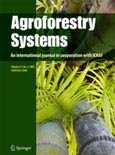Improving land tenure security (LTS) is a significant challenge for sustainable development. The Sustainable Development Goals and other recent global initiatives have renewed and increased the need to improve LTS to address climate change, biodiversity loss, food security, poverty reduction, and other challenges. At the same time, policymakers are increasingly interested in evidence-based policies and decisions, creating urgency for practitioners and researchers to work together. Yet, incongruent characterizations of LTS (identifying the key components of LTS) by practitioners and researchers can limit collaboration and information flows necessary for research and effective policymaking. While there are systematic reviews of how LTS is characterized in the academic literature, no prior study has assessed how practitioners characterize LTS. We address this gap using data from 54 interviews of land tenure practitioners working in 10 countries of global importance for biodiversity and climate change mitigation. Practitioners characterize LTS as complex and multifaceted, and a majority of practitioners refer to de jure terms (e.g., titling) when characterizing it. Notably, in our data just one practitioner characterized LTS in terms of perceptions of the landholder, contrasting the recent emphasis in the academic literature on landholder perceptions in LTS characterizations. Researchers should be aware of incongruence in how LTS is characterized in the academic literature when engaging practitioners.
Download:
DOI:
https://doi.org/10.1111/csp2.186
Puntuación Altmetric:
Dimensiones Recuento de citas:

Año de publicación
2020
Autores
Masuda, Y.J.; Kelly, A.C.; Robinson, B.E.; Holland, M.B.; Bedford, C.; Childress, M.; Game, E.T.; Ginsburg, C.; Hilhorst, T.; Lawry, S.; Miteva, D.A.; Musengezi, J.; Naughton-Treves, L.; Sunderlin, W.D.; Velt, P.
Idioma
English
Palabras clave
land tenure, tenure systems, property rights
Geográfico
Brazil, Colombia, Ecuador, Guatemala, India, Indonesia, Liberia, Peru, Tanzania, Uganda



















